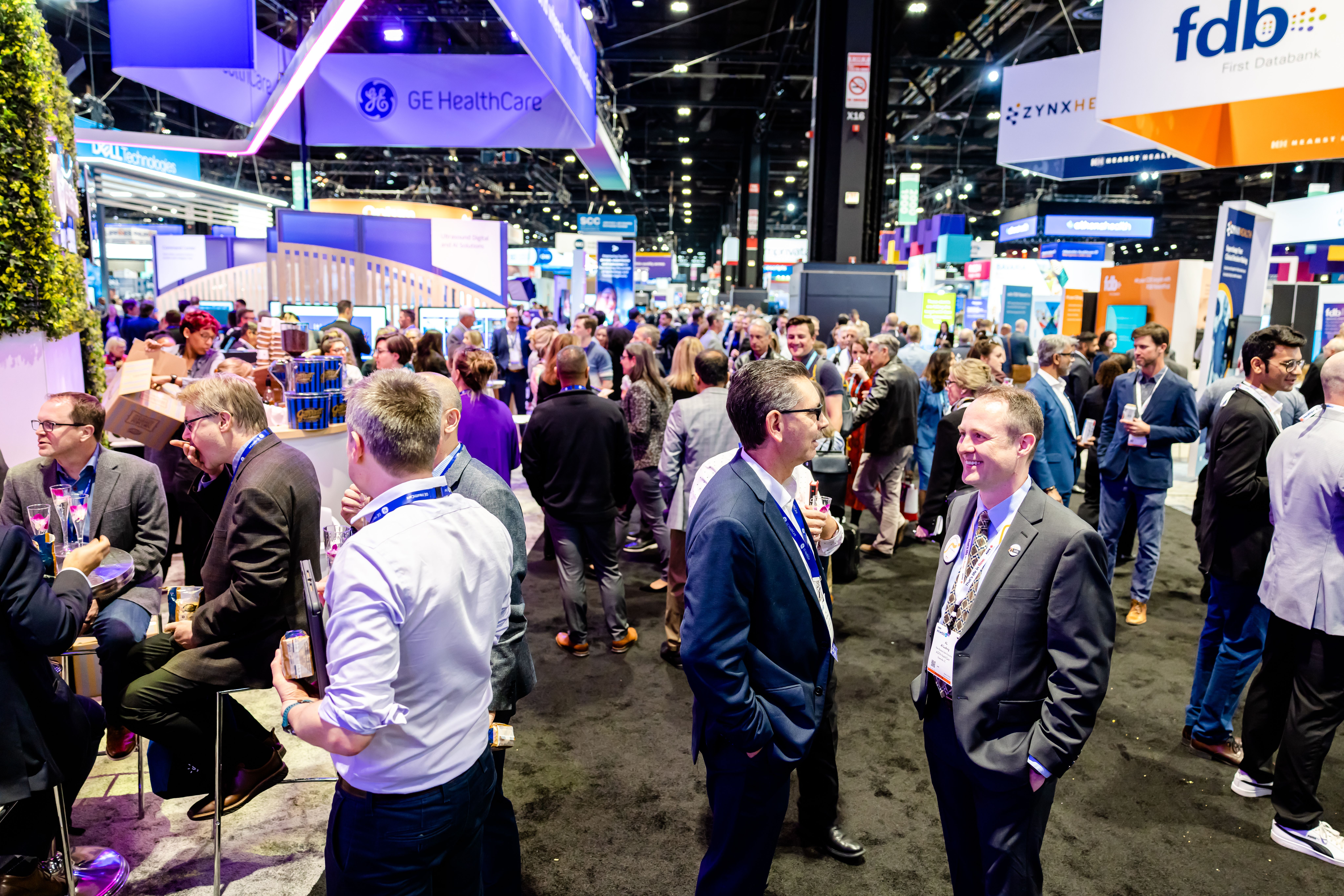HIMSS CEO Hal Wolf previews the 2024 conference: AI, cybersecurity and more
The Global Health Conference & Exhibition is drawing more than 30,000 to Orlando this week. Hal Wolf talks with us about the big event, health technology and improving access to care.
Thousands of healthcare leaders from around the world are heading to Orlando this week for the HIMSS Global Health Conference & Exhibition.
There are a host of pre-conference sessions taking place today, but the conference kicks off in earnest on Tuesday and runs through Friday.
More than 30,000 people are expected to attend this year’s conference, roughly matching the attendance for last year’s event in Chicago, says Hal Wolf, president and CEO of the Healthcare Information and Management Systems Society (HIMSS).
“It's really phenomenal,” Wolf says.
This is also the first annual event since HIMSS reached a deal with Informa Markets to manage the conference and exhibition last August. HIMSS continues to oversee the development of the content and programming.
More than 4,000 C-suite and executive-level leaders will be attending the conference. Wolf notes that thousands of other healthcare leaders across the industry, including chief information officers, chief medical officers, nurse informaticists, and physician leaders, attend the event each year.
In addition, the conference has seen a newer influx of people in operations, professional development and human resources, as well.
Plenty of health technology companies are coming to get new contracts and partnerships at HIMSS. “Another constant tone that we hear from HIMSS is I go there to do business. I get a lot of business done,” he says.
But Wolf also touts the educational opportunities of the HIMSS conference as a key element of the event’s identity.
“One of the significant advantages at HIMSS, which is different than some of the other places, people really come there to learn as much as anything else,” he says. “You have hundreds of programs.”
In a conversation with Chief Healthcare Executive®, Wolf outlines some highlights of the annual event, including conversations on AI, cybersecurity and a host of other topics. Wolf says the conference is designed to highlight the latest technology but also aimed at taking those new tools and using them to improve healthcare.
“You have everything from the strategic level, to the implementation level, and all the new toys and technologies and everything else in between, that have to perform at scale,” Wolf says. “And if we can't deliver them at scale … they are interesting, but they may not be relevant. And relevancy is what HIMSS is all about.” (See part of our conversation with Hal Wolf. The story continues below.)
An abundance of AI
Expect plenty of conversations on the use of artificial intelligence in healthcare, highlighting its potential as well as some of the ethical guidance to utilize it responsibly.
“There will be a ton of discussion about AI,” Wolf says.
Some of the discussions will involve operational uses of AI to provide health organizations better insights, such as projections on capacity, which can influence planning. “AI is creating cumulative views of the operational window and giving operational leaders insights that they would normally get in retrospect,” Wolf says.
Beyond discussions of AI improving the business end, the conference will explore how AI can be used to improve patient care.
“We really have a lot of discussion about. … how we're utilizing artificial intelligence, in terms of clinical decision support, recommendations on drug efficacy, and those types of very important clinical tools that are influencing or giving suggestions on what physicians might want to do,” Wolf says.
Past sessions have examined potential harms from utilizing AI improperly, including the possibility that AI tools could offer recommendations reflecting racial bias.
“And it's here that the biases, we need to be very conscious of,” he adds. “It's here that the efficacy gets looked out with great scrutiny. And so we have a tendency to think about that, at that really higher level. And that was the opening keynote last year. And you'll hear pieces of it, absolutely threaded throughout,” Wolf says.
The conference will explore practical uses of AI across the health ecosystem, as well as utilizing it properly. “AI is a tool, not a target,” he says.
More than 30,000 are expected to attend the HIMSS Global Health Conference & Exhibition. (Image: HIMSS)

Cybersecurity
The annual conference has offered plenty of sessions of cybersecurity. In light of the cyberattack on Change Healthcare and other high-profile breaches, cybersecurity sessions figure to be popular once again. “Now and evermore,” Wolf says.
“People are going to attack the government, they're going to attack corporations, they are going to attack hospitals,” Wolf says.
Cybersecurity is poised to remain an important part of healthcare, especially as organizations rely more on data.
“We need that information to drive our applets and our capabilities, and we have a lot of really important thoughts and knowledge that is stored in our systems,” Wolf says.
Other highlights
The HIMSS conference features “Venture Connect,” which aims to build collaboration among investors, entrepreneurs and providers. Wolf touted a redesign of Venture Connect this year.
“It's really focusing on how we bring that innovation forward, and connect it to the individuals that are going to be a key part of what they're thinking about and where they're going to go,” Wolf says.
The HIMSS Global Health Conference & Exhibition draws healthcare leaders from around the world.

In addition, some familiar programs and discussions will be returning.
“You're going to see the things you also expect, interoperability, nurse informaticists, data science, predictive analytics, all those are fundamental program tracks,” Wolf says. “Because those are the heart and soul and the core of what's happening on the ground every single day.”
The conference will also include discussions of health equity and expanding access to healthcare.
“It all starts with our vision statement, which is to realize the full health potential of every human everywhere,” Wolf says.
Wolf says the opportunity to improve healthcare access and quality is what gets him out of bed in the morning.
“There are also a lot of people who live in the shadows of some of the greatest hospitals in the world, and they can't get access,” Wolf says. “Digital health is one of those capabilities that, short term and over time, help impact health equity, by gaining access to people that may not be able to get through the door but don't even need to be getting through the door.”
Wolf says he’s “extraordinarily proud of the conference.” But he also takes pride in the growth of the HIMSS organization. Since becoming CEO more than six years ago, the HIMSS membership has grown from under 80,000 to more than 120,000.
Over the years, HIMSS has also become a trusted resource for the healthcare system and government leaders, Wolf says.
“We're making an impact on a global basis,” Wolf says. “People look to HIMSS constantly.”
Telehealth faces a looming deadline in Washington | Healthy Bottom Line podcast
February 12th 2025Once again, the clock is ticking on waivers for telemedicine and hospital-at-home programs. Kyle Zebley of the American Telemedicine Association talks about the push on Congress and the White House.